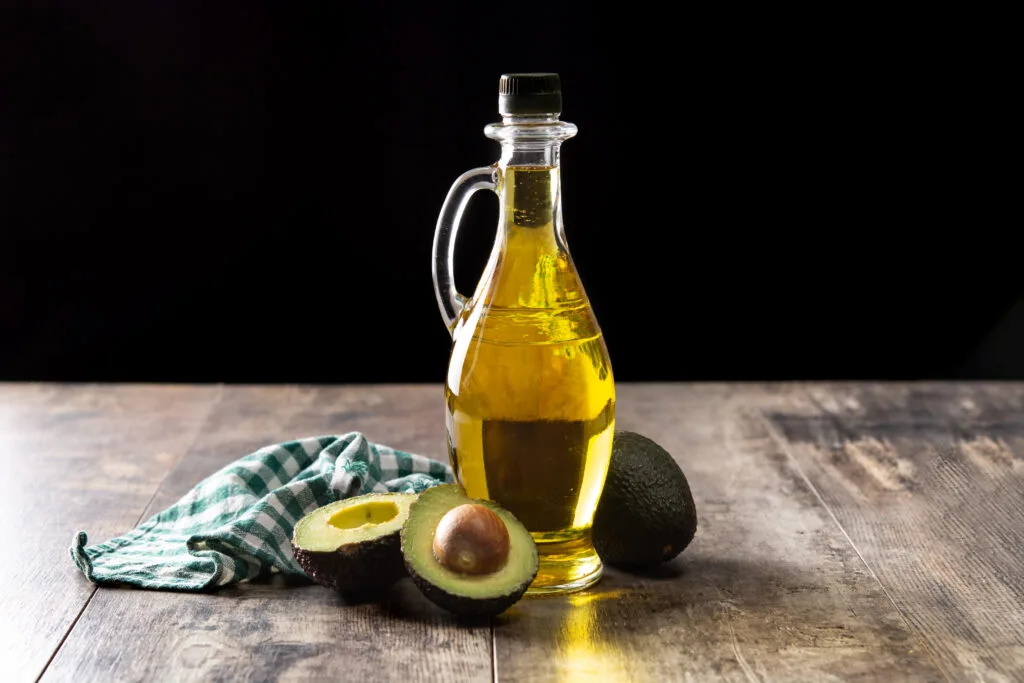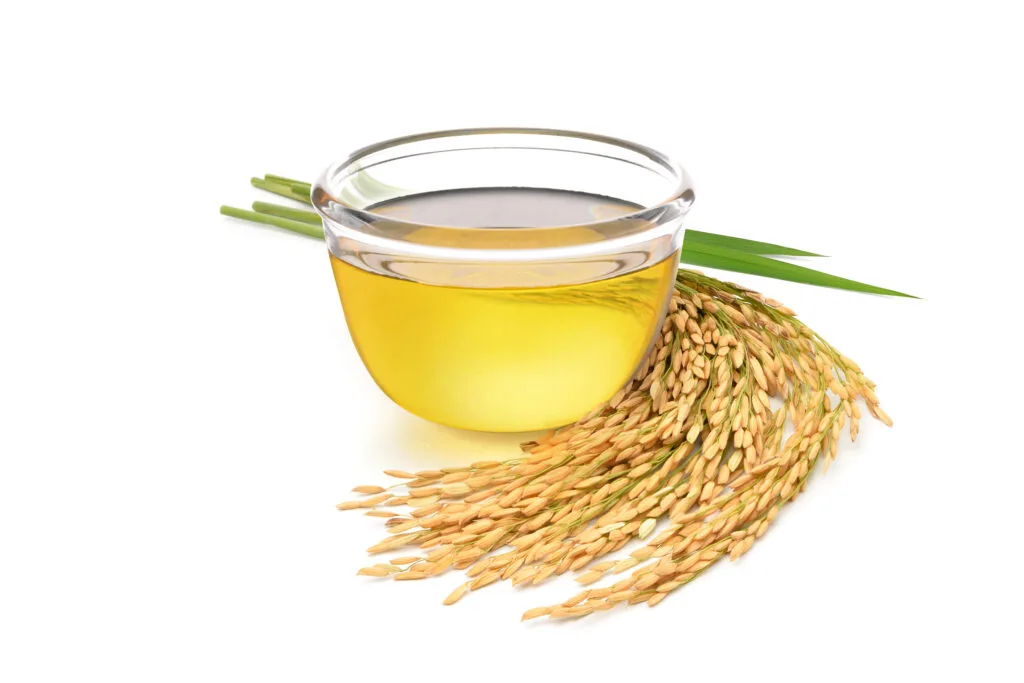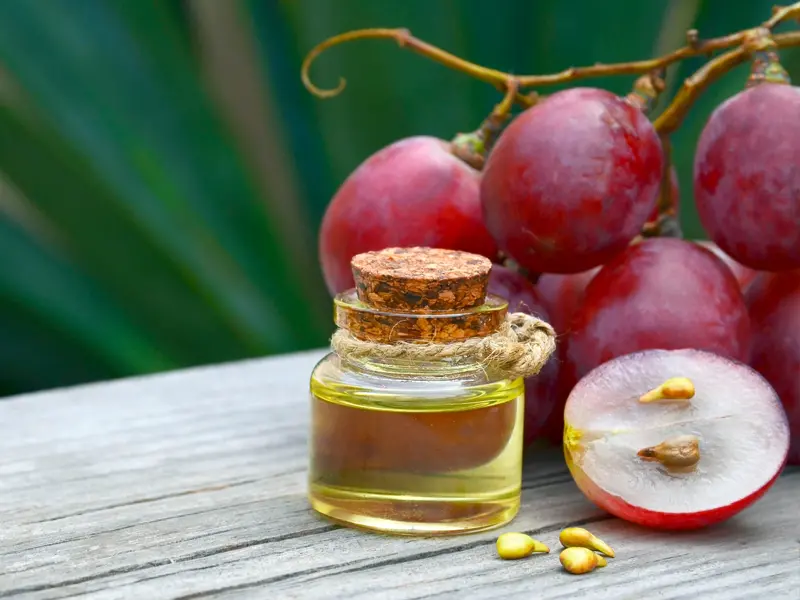Are you looking for the best substitute for grape seed oil, especially if you cannot source it? Although grapeseed oil is a versatile and favored option for its high smoke point and mild taste, the good news is that there are many alternatives for healthier meals.
Grapeseed oil has several substitutes, including olive oil, safflower oil, canola oil, avocado oil, peanut oil, sunflower oil, rice bran oil, almond oil, and walnut oil. Each has similar smoke points and is low in saturated fat content for stir-frying, grilling, and baking.
To help you find the right option, we’ve written a comprehensive guide on the best substitutes for grapeseed oil. We’ll discuss their unique benefits and uses to help you decide which fits your culinary needs perfectly.
What is Grapeseed Oil?
Grapeseed oil is extracted from the leftover seeds of grapes and has a neutral taste with a high smoke point of 216°C, making it ideal for baking and sautéing.
The extraction process of grapeseed oil is natural, as it involves cold-pressing the grape seeds collected after the wine-making process.
Grapeseed oil is not necessarily the healthiest oil for cooking. However, it has significantly more vitamin E and polyunsaturated fats than most other oils, contributing to a healthy diet.
It is a popular choice among gourmet chefs due to its light and neutral taste, which enhances the flavors of the other food ingredients and leaves no greasy aftertaste. But you might be looking for a substitute if you cannot get grapeseed oil for any reason.
What is grapeseed oil compared to?
Grapeseed oil is often compared to olive oil because of its similar nutrients per serving. However, when it comes to finding a suitable grapeseed oil replacement, there are several options to consider, which we’ll discuss in detail later.
Best Substitutes For Grape Seed Oil
When looking for what is similar to grapeseed oil, you want to find an oil with a high smoke point and low in saturated fats.
Below are some of the best substitutes for grapeseed oil that you can use while baking something or cooking your favorite dish.
1. Olive Oil
Olive oil is a healthy substitute for grapeseed oil due to its high smoke point (410 °F or 210 °C) and low saturated fat content. It is full of vitamin E and monounsaturated fats and comes in extra virgin and virgin olive oil. The former has a stronger taste and more antioxidants.

Olive oil is perfect for multi-purpose cooking, including salad dressings and roasting vegetables.
INFO: You can use olive oil to cook a Canadian Goose.
2. Safflower Oil
Made from safflower plants’ seeds, safflower oil is rich in linolenic acid and healthy fats like polyunsaturates and monounsaturates. The oil has a smoke point of 511 °F and no flavor, which means it is a fantastic grapeseed oil alternative for baking.

INFO: Safflower oil is pricey and not as easily accessible as other grapeseed substitute oils.
3. Canola Oil
If you are frying something or baking a cake using a chef’s recipe that includes grapeseed oil but doesn’t have it, you might wonder, “Can I use canola oil instead of grapeseed oil?”

Well, you can! Canola oil is a neutral-flavored oil, just like grapeseed oil, with a high smoke point, which means you can use it for high-heat cooking recipes without burning the food.
When you compare grapeseed oil vs canola oil, the latter is rich in healthy omega-3 and monounsaturated fats and has a low level of saturated fats.
4. Avocado Oil
Many reviews on avocado oil vs grapeseed oil have shown that the avocado has a rich, creamy texture and a mild flavor with hints of nuttiness. With a smoke point of 271ºC/520ºF, this oil is ideal for sautéed dishes, grilling, and baking.

The oil has high levels of carotenoids, lutein, vitamin E, and phytosterols and contains 70% oleic acid. Due to this, many people commonly use it as a moisturizer for skin and hair. So, next time you need a sub for grapeseed oil, try avocado oil.
5. Peanut Oil
Peanut oil is another best substitute for grapeseed oil because it is a good source of omega-6 and monounsaturated fats.

Moreover, it has a very high smoke point of around 232ºC/450ºF, so it pairs nicely with most kinds of meat, Asian stir-fries, and green vegetables.
6. Sunflower Oil
Sunflower oil is extracted from pressed sunflower seeds and is a good source of phytochemicals such as choline and phenolic acid. It’s a perfect grapeseed oil substitute in baking because of its neutral taste and up to 230°C smoke point.

7. Rice Bran Oil
Made from the hard outer layer of brown rice grains, many people widely use rice bran oil as a grapeseed oil alternative. This oil has a mild flavor, contains lower amounts of saturated fat, and you can heat it at a high temperature of up to 490° F or 232 °C.

8. Coconut Oil
Coconut oil is a versatile and healthy substitute for grapeseed oil, with many culinary applications, as it has a high smoke point of 350°F. Moreover, it includes 87g of saturated fat and is rich in antioxidants that aid in counteracting free radicals.

9. Almond Oil
With a mild nutty taste and a high smoke point of around 216ºC/420ºF, Almond oil is a great substitution for grapeseed oil. The oil has a high ratio of Vitamin C and healthy polyunsaturated fats and is low in saturated fats.

10. Walnut Oil
Another best substitute for grape seed oil is Walnut oil, made from crushed dried walnuts through a cold-pressing. The oil has a buttery texture and a nutty flavor, and it is loaded with antioxidants, omega-3s, and polyunsaturated fats.

What oil is closest to grapeseed oil?
Out of the 10 grapeseed oil alternatives mentioned above, Canola oil closely resembles grapeseed oil in terms of its mild flavor, high smoking point, and availability.
Thus, you can use Canola oil as a grapeseed oil substitute whenever needed without worrying about ruining the recipe.
Conclusion
In this comprehensive guide, we’ve explored the best substitute for grapeseed oil. We’ve discussed their smoking point, flavor, and benefits to give you a complete overview of these alternatives.
Hopefully, this guide was helpful, and you can now make your recipes without worrying about searching for grapeseed oil first.

